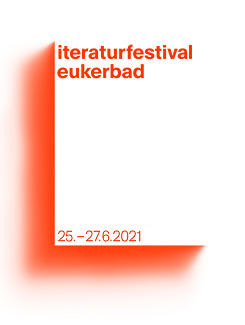
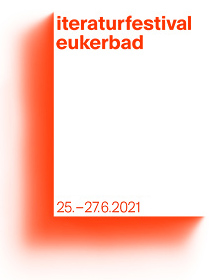
Perspectives:
Current topics from culture and society in conversation
For place and time, see detailed Festival programme
Anniversary Focus: Literature from French-speaking Switzerland in German-speaking Switzerland
It should be possible to build more literary bridges to counteract the deepening of the so-called “Röstigraben”, or “Rideau de rösti” as it is called in French-speaking Switzerland. It would be a gain for both sides if we were to deal more with the peculiarities of our respective counterparts through literature. Therefore, at this year’s Leukerbad Literary Festival, which is at home on the edge of the Röstigraben, we would like to explore the following questions:
What does a successful exchange between the language regions look like? And does it perhaps succeed more often than we assume?
What does it look like in practice? Several authors from Suisse romande enjoy a high reputation in the French-speaking world because of the quality of their texts and reach a broad reading public. But are they also noticed in the German-speaking part of Switzerland?
Perspectives I
Bridges over the “Röstigraben”
Marie Fleury, Ruth Gantert and Camille Luscher in conversation with Eric Facon
Which works from Suisse romande are translated and read in German? Which ones are not noticed enough or not at all? What needs to happen - on both sides – to give literature from Suisse romande greater attention in the German-speaking part of Switzerland? And how does it look the other way around? Which and how many Swiss-German authors are translated and read in French-speaking Switzerland? Based on these questions, the three participants in the discussion explain the work of building bridges.
Perspectives II
Publishing work
Ursi Anna Aeschbacher, Angelika Salvisberg and Martin Zingg in conversation with Raphael Urweider
Many questions arise in the publishing work on texts from French-speaking Switzerland: What criteria determine the selection of works for translation and publication in German-speaking Switzerland? Are they the right ones? Why do many Swiss-German publishers tend to hold back on translations and publications from Suisse romande? And what is the reason for the low sales figures complained about by those who exercise less restraint? What are the experiences of those who dare to do more translations?
Ursi Anna Aeschbacher was born in Biel, where she returned after 30 years in Germany. She worked for the Öko-Institut in Freiburg i.Br., for various publishing houses and intensively for radio. She is the publisher of the publishing house “die brotsuppe” and works as an editor, book designer, graphic artist, illustrator, and author for various publishing houses.
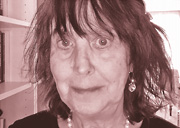
Ruth Gantert is a literary mediator, editor and translator. She is artistic director of the Service de presse suisse and editorial director of the trilingual yearbook of Swiss literatures Viceversa and the internet platform viceversaliteratur.ch. She translated, among others, the first five volumes of Ungewissen Manifests (The Uncertain Manifesto) by Frédéric Pajak (edition clandestin) and short stories by Anna Felder (Circolare, Limmat Verlag). In 2021, Viceversa 15, Familiengeschichten (Rotpunktverlag) was published.
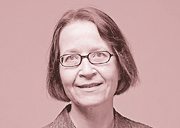
Marie Fleury is an associate researcher at the Centre d'Études et de Recherches sur l’Espace Germanophone at Université Sorbonne Nouvelle and an associate researcher at the Institute for Romance Philology at Freie Universität Berlin. She received her PhD in 2019 with a thesis on the functionalization of brand names in contemporary German- and French-language literature. For the past ten years, she has coordinated and moderated the Literaturhaus Zürich’s reading series “Ces voisin es inconnu-es” in French-speaking Switzerland. As part of this series, readings are held twice a year in Lausanne and Geneva, each time with an author from German-speaking Switzerland and his or her translator into French.
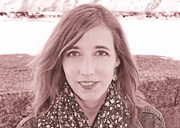
Camille Luscher is a freelance literary translator and mediator. She works at the Centre de traduction littéraire in Lausanne and is active in various organizations promoting exchanges between the different parts of the country. Translations of Annette Hug, Eleonore Frey, Max Frisch and Arno Camenisch, among others. Since January 2019, she has also been active in publishing as editor of the Domaine allemand series at Editions Zoé in Geneva.
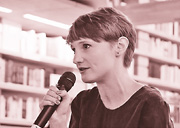
Angelika Salvisberg was born in Fribourg, studied German and communication studies in Fribourg and at the LMU Munich. Drama dramaturge at the Stadttheater Bern, at the Badische Landesbühne Bruchsal and at the Stadttheater Konstanz. 2008–2019 Head of Department “Literature and Society” at the Swiss Arts Council Pro Helvetia. Since 2020 freelance in the fields of project consulting and management (e.g. for the S. Fischer Foundation Berlin) and as an evaluator for Evalure, Center for Cultural Evaluation, Zurich.
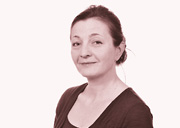
Martin Zingg was born in Lausanne, lives in Basel, writes, translates and edits. Most recently: Joseph Joubert: Alles muss seinen Himmel haben. Aus den Notizen (Jung und Jung, 2018); G. Davenport/F. Kafka: Die Aeroplane von Brescia (Engeler, 2021); Jörg Steiner: Gesammelte Werke (Suhrkamp, 2021).
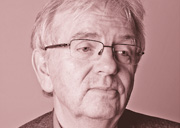
Two talks about violence against women: What are the structural backgrounds of verbal, psychological and physical aggression against women?
Perspectives III
Franziska Schutzbach and Klaus Theweleit in conversation with Christine Lötscher
Klaus Theweleit unfortunately had to cancel his participation, the talk is cancelled.
Perspectives IV
Priya Basil, Patrícia Melo and Franziska Schutzbach in conversation with Christine Lötscher
UNICEF publications show that violence against women and girls is the most common human rights violation worldwide. This problem is very complex and there are multiple connections between cause and effect. The two conversations on violence against women seek to highlight the links of violence, structural discrimination, and misogyny, asking questions such as: Is there a direct and possibly even measurable link between the extent of direct violence against women and its structural discrimination? Has the structural aspect of violence against women been given too little importance so far?
Perspectives V
Capital and resentment
Monika Bütler and Joseph Vogl in conversation with Stefan Zweifel
There is a trail of destruction from the rule of the financial markets to the new net giants to the dynamized opinion industry. Democracy, freedom and social responsibility are falling by the wayside. Joseph Vogl is one of the most interesting spokesmen of a new generation of critics of capitalism. In his new book Kapital und Ressentiment (Capital and resentment), he reconstructs how new forms of power have emerged in the digital age that are increasingly intervening on a massive scale in the decision-making processes of governments, societies and economies across national borders. It is no coincidence that economics and business studies are the domains of men.
Perspectives VI
Populism
Lukas Bärfuss, Jonas Lüscher and Michael Thumann in conversation with Stefan Zweifel
Has the “elite” really lost touch with the “people”? What does it mean to take people’s fears seriously? Right-wing and left-wing populists around the world are united by the same narrative: that the state is in the hands of an aloof, globalist-minded, mostly urban elite that has long since lost touch with "normal" citizens and can no longer even comprehend the everyday concerns of the "people." But they, the populists, do not belong to this elite, and they are therefore the only ones who understand, openly articulate and take the fears of the citizens seriously. Based on the book Der populistische Planet (The Populist Planet), the three participants will trace the many manifestations of populism.
Perspectives VII
Nationalism
Michael Thumann in conversation with Lukas Bärfuss
In the 1990s, a new nationalism emerged. Nationalists are gaining ground, in Russia, in Turkey, even in Germany. In Eastern Europe, authoritarian rulers use nationalism as a means to expand their power. Putin, Erdogan, Orbán and Trump in the U.S. threaten(ed) liberal democracies as well as the classical alliances. What all nationalists have in common is that they always see others as the guilty parties and themselves as the victims. The pandemic has exacerbated this situation.
Perspectives VIII
Rethinking poetry: What new departures are possible, where can and will the new poetry go?
Martin Bieri, Jürg Halter and Monika Rinck in discussion with Raphael Urweider
New forms that mix language, rhythm and music, such as spoken word, rap and song lyrics have an impact on lyricists. Prose poem, long poem, essayistic poem – what happens between the genres? Digitalization is also changing poetry, or rather poetry production and reception. The occasion for which poetry is written and performed is becoming more important (e.g., attention to Inaugural Poets in the U.S.).